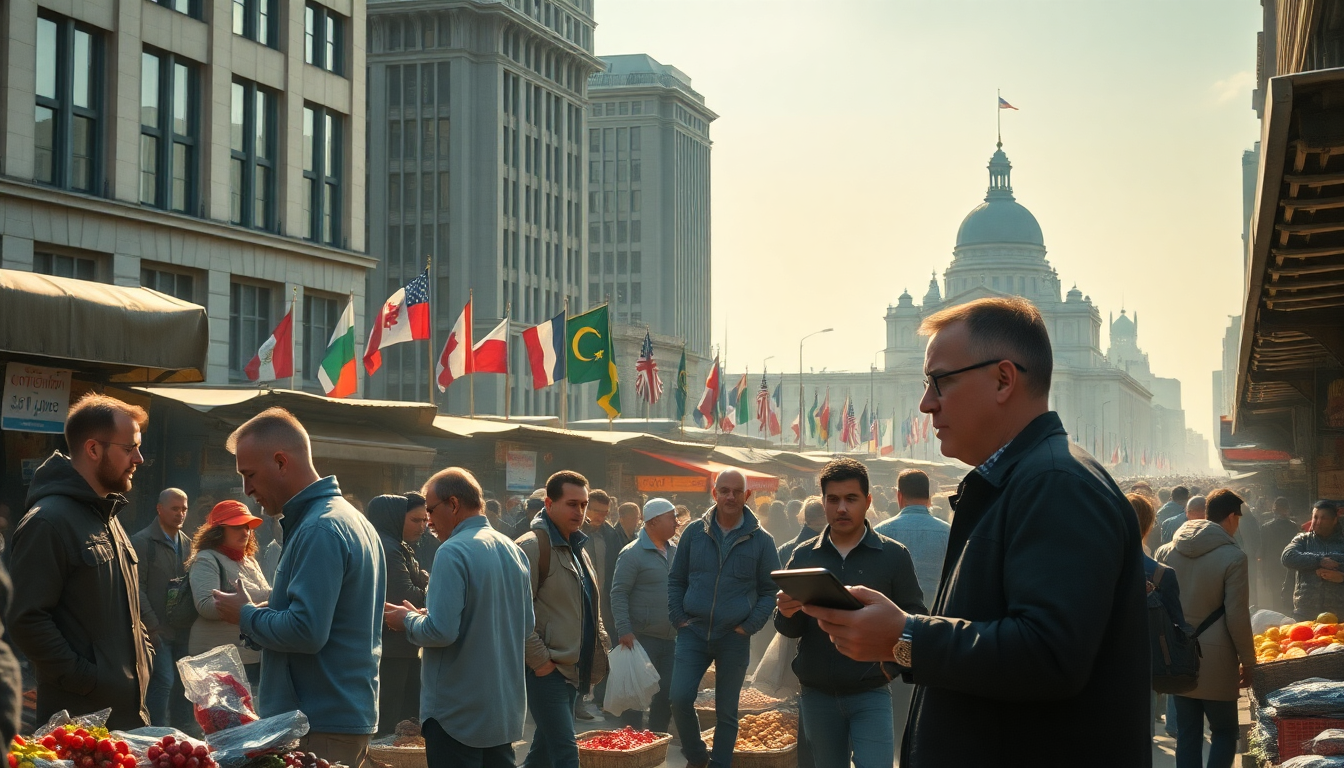Table of Contents
In our increasingly interconnected world, political tensions don’t just stay within the borders of a country; they ripple out, affecting economies and investment opportunities everywhere. Think about it: from trade wars to military conflicts, the fallout of these geopolitical events can hit hard, influencing everything from consumer confidence to market stability. So, how can investors navigate this complex landscape? This article dives into recent political events and their potential economic impacts, offering insights into smart investment strategies.
Current geopolitical landscape and its implications
Right now, the geopolitical scene is heating up, with major world powers facing off in a variety of arenas. A prime example? The ongoing trade conflict between the United States and China. With tariffs and retaliatory measures flying back and forth, it’s no wonder that trade flows are getting disrupted and uncertainty is creeping into the markets, leaving investors feeling a bit on edge.
But it’s not just trade that’s causing waves. Tensions in regions like the Middle East can send shockwaves through global oil prices, impacting sectors that rely heavily on stable energy costs. Just think about it: military engagements or new sanctions can lead to volatility in oil markets, which in turn affects inflation rates and consumer spending. Understanding these connections is essential for anyone looking to make informed investment decisions.
And let’s not forget about political instability in emerging markets. This can pose serious risks for international investors. Keeping an eye on local developments is crucial because shifts in government policies or outbreaks of civil unrest can lead to sudden economic changes. So, analyzing geopolitical risks should definitely be part of any savvy investment strategy.
Investment strategies in a volatile environment
Given these geopolitical uncertainties, a cautious approach is definitely the way to go for investors. One effective strategy is to diversify your investment portfolio across various asset classes and geographic regions. This helps cushion against the risks that come with political instability. For example, while emerging markets might seem tempting due to their high growth potential, they also carry a hefty dose of volatility. Balancing these investments with more stable assets, like bonds or real estate, can provide a necessary safety net.
Moreover, it pays to focus on sectors that tend to thrive during uncertain times. Defensive stocks, like utilities and consumer staples, often deliver stable returns, even when markets are choppy. Plus, investing in precious metals, such as gold, can act as a hedge against economic downturns and inflationary pressures. Who wouldn’t want a little extra security in their investment portfolio?
Finally, staying updated on global news and geopolitical developments is essential. Regularly checking economic indicators and market trends can empower you to make timely adjustments to your strategies. This way, you can navigate the complexities of a volatile investment landscape with confidence.
Looking ahead: potential scenarios and forecasts
As we gaze into the future, it’s clear that geopolitical tensions will likely continue to shape the economic landscape. Analysts suggest that the ongoing trade disputes, particularly between the US and China, could drag on, leading to further market fluctuations. So, what should investors do? Prepare for a variety of scenarios, ranging from gradual stabilization to potential escalation in conflicts. It’s better to be ready than to be caught off guard!
On top of that, factors like climate change and resource scarcity are becoming increasingly important in geopolitical discussions. These issues could spark new conflicts, especially in regions already grappling with economic challenges. Therefore, it’s wise for investors to consider environmental, social, and governance (ESG) factors when making decisions. Companies that prioritize sustainability may just have the edge in a rapidly changing world.
In conclusion, grasping the intricate relationship between geopolitics and economics is key for investors today. By staying informed and adopting flexible investment strategies, you can navigate the complexities of the global market while uncovering opportunities for growth amid uncertainty. After all, in a world full of surprises, isn’t it better to be prepared?


